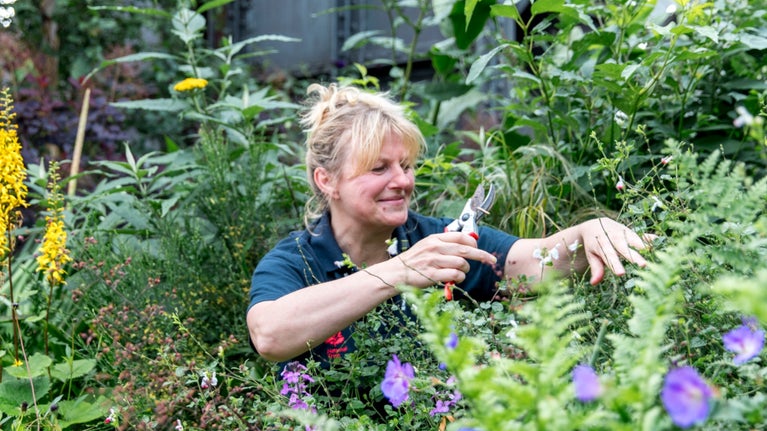
Get gardening
Our gardeners are on hand with ideas for your garden, plot or window box. From planting veg to tackling weeds, they’ve got all the important topics covered.

Peatlands store carbon, control flooding and create homes for wildlife. When peat is extracted from these special landscapes, they’re damaged forever. Read our top tips for gardening with peat-free compost – and why we’re working hard to stop using peat, especially at the gardens in our care.
Peatlands act as a carbon store, provide a great habitat for wildlife, play their part in water management and can even preserve archaeological items. They’re being damaged by drainage, over-grazing, burning and extraction for use as a fuel – and in garden compost.
We’re working hard to reverse the negative impacts on the peatlands in our care, but much of the peat in compost sold in the UK comes from peatlands elsewhere in Europe. We have a responsibility to protect these precious habitats too.
We’re one of the first organisations to commit to going peat free. All the plants we grow, buy and sell are potted in peat-free compost, and we never use peat for mulching or soil improvement.
You can make a big difference by going peat free in your own garden, allotment or balcony planters. You can also encourage retailers and the Government in their efforts to phase out the use of peat in gardening products.


All the plants propagated at the Plant Conservation Centre in Devon are grown without peat – even the trickiest of specimens.
Originally the team at the centre mixed their own potting compost by hand, using a blend of coir, loam, leaf mould and potting grit. Now, they use some of the excellent ready-made peat-free mixes available, which contain a mix of fine-grade bark, coir and loam.
With expert care, even ericaceous (acid-loving) plants like rhododendrons, heather and camellias can grow and thrive without peat.

Our gardeners are on hand with ideas for your garden, plot or window box. From planting veg to tackling weeds, they’ve got all the important topics covered.
Discover the vital ways peat supports the environment, from carbon store to archaeological record, and see some of our key projects protecting and restoring the peatland in our care.

The climate crisis can be overwhelming, but small actions can help make big changes. Find out how you can play your part with ideas from planting trees to going peat-free.
